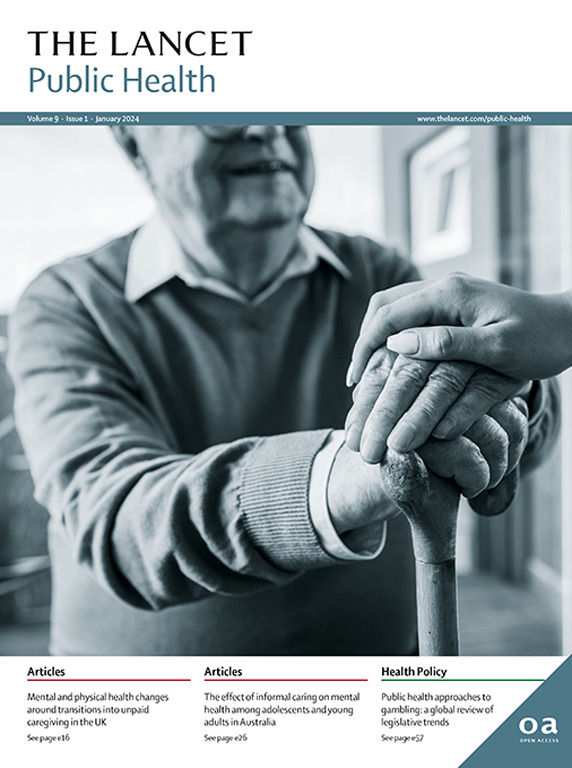对不健康食品征税:菲律宾食品政策改革案例
IF 25.2
1区 医学
Q1 PUBLIC, ENVIRONMENTAL & OCCUPATIONAL HEALTH
引用次数: 0
摘要
随着超加工食品消费的增加,政策制定者面临的问题不再是不健康饮食是否构成重大健康风险,而是如何应对。在《柳叶刀公共卫生》杂志上,阿克萨尔·萨克塞纳及其同事给出了一个令人信服的答案:对不健康食品征税。本文章由计算机程序翻译,如有差异,请以英文原文为准。
Taxing unhealthy foods: a Philippine case for food policy reform
With ultra-processed food consumption increasing, the question confronting policy makers is no longer whether unhealthy diet is a major health risk, but what to do about it. In The Lancet Public Health, Akshar Saxena and colleagues1 offer a compelling answer: tax unhealthy foods.
求助全文
通过发布文献求助,成功后即可免费获取论文全文。
去求助
来源期刊

Lancet Public Health
Medicine-Public Health, Environmental and Occupational Health
CiteScore
55.60
自引率
0.80%
发文量
305
审稿时长
8 weeks
期刊介绍:
The Lancet Public Health is committed to tackling the most pressing issues across all aspects of public health. We have a strong commitment to using science to improve health equity and social justice. In line with the values and vision of The Lancet, we take a broad and inclusive approach to public health and are interested in interdisciplinary research.
We publish a range of content types that can advance public health policies and outcomes. These include Articles, Review, Comment, and Correspondence. Learn more about the types of papers we publish.
 求助内容:
求助内容: 应助结果提醒方式:
应助结果提醒方式:


